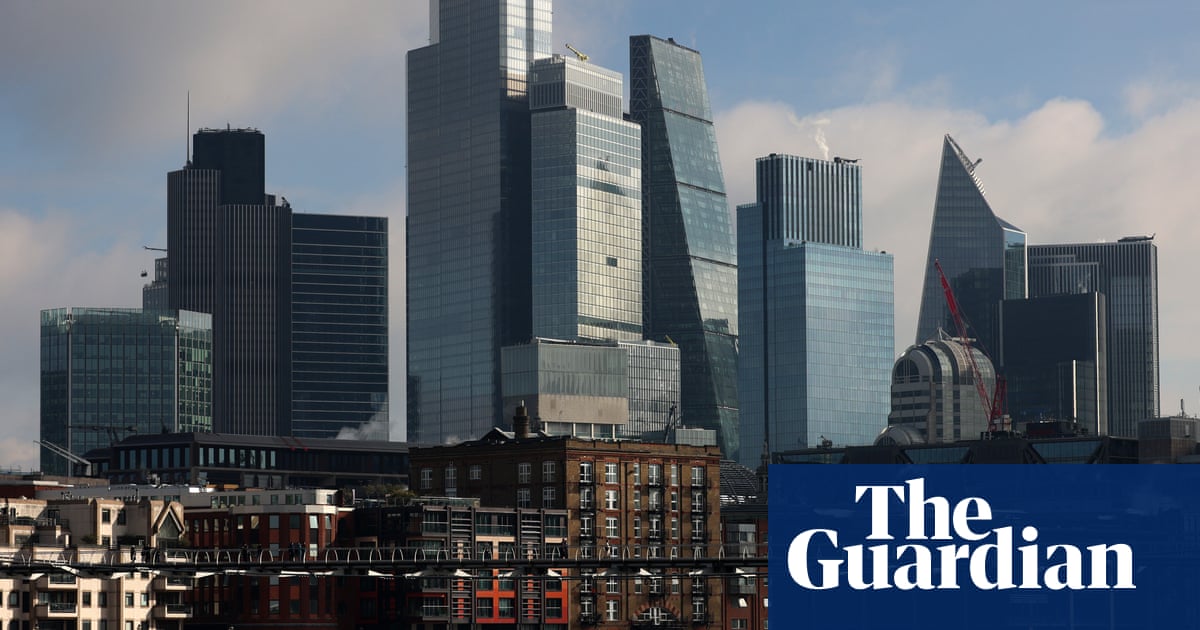The UK economy grew by a bigger than forecast 0.7% in the first three months of the year, figures show, defying business warnings of a collapse in confidence ahead of Labour’s tax increases and Donald Trump’s sweeping tariffs.
TheOffice for National Statisticssaid gross domestic product (GDP) rose at the strongest pace in a year, beating City predictions of a 0.6% rise and continuing an expansion after growth of 0.1% in the final quarter of 2024.
Driven by Britain’s dominant services sector, the latest snapshot will bolster the chancellor, Rachel Reeves, after business leaders had warned earlier this year that her tax policieswould hit jobs and growth.
However, economists have cautioned that growth later in the year is likely to be much weaker than in the first quarter, amid concerns over the fallout from Trump’s erratic tariff plans after his“liberation day”announcement on 2 April.
The Bank of England last week said Britain’s prospects had worsened amid the heightened global uncertainty over the US president’s trade wars, as it forecastnear stagnant activity for the rest of the year.
Keir Starmer’s government has sought to insulate Britain from the international fallout by striking trade deals and focusing attention on the government’s industrial strategy, including agreeing anaccord with Washingtonto reduce some of Trump’s tariffs on cars, aluminium and steel.
The UK prime minister also agreed along-desired trade deal with India, and will next week push for closer trade ties with the EU at a summit designed to “reset” relations with Brussels after Brexit.
Analysts had predicted bumper growth in the first quarter, after anunexpectedly strong 0.5% expansion in February. The latest monthly figures show that GDP in March rose by 0.2%, surpassing the forecasts of City economists who had predicted zero growth on the month.
British households have so far proven resilient to the heightened economic uncertainty despitesurveys of consumer confidenceand business sentiment having showna sharp decline in recent months.
The ONS said growth in the service sector economy was broad based over the first quarter, with retail, wholesale and computer programming all having a strong start to the year, as did car leasing and advertising. This was only slightly offset by falls in education, telecoms and legal services.
Alongside growth of 0.7% in the service sector over the first quarter, production – which includes manufacturing, mining and energy – rose by 1.1%, while activity in the construction sector showed no growth.
The latest snapshot stands in sharp contrast to the alarm being sounded by business leaders earlier this year, who warned that Reeves’s autumn budget – including a £25bn rise in employer national insurance contributions from April – risked crashing the economy into recession.
Economists said some of the strength in the first quarter was down to a sharp recovery in business investment after a weak end to 2024, including spending on aircraft, IT equipment and machinery.
Sign up toBusiness Today
Get set for the working day – we'll point you to all the business news and analysis you need every morning
after newsletter promotion
“That rise is completely at odds with the plunge in business confidence triggered by the large rises in national insurance contributions for employers and the minimum wage announced in October’s Budget and the US tariff concerns this year,” said Paul Dales, chief UK economist at the consultancy CapitalEconomics.
However, he warned much of the increase could also be down to businesses pulling forward activity to get ahead of Trump’s tariffs, amid fears over a tougher period in the coming months. UK export volumes increased by 3.5%, following three consecutive quarterly declines, while overall international trade added 0.4 percentage points to GDP growth in the first quarter.
Reeves said the figures showed the government’s plan was working. “In the first three months of the year, the UK economy has grown faster than the US, Canada, France, Italy and Germany.“Up against a backdrop of global uncertainty we are making the right choices now in the national interest. Since the election we have already had four interest rate cuts, signed two trade deals, saved British Steel and given a pay rise to millions by increasing the minimum wage.”
However, growth over the coming months is expected to be far weaker amid heightened uncertainty over the global outlook as Trump’s tariff policies torpedo business confidence and weigh heavily on international trade.
Simon Pittaway, senior economist at the Resolution Foundation, said: “This growth rebound is unlikely to last, with data for April looking far weaker, and huge tariff-shaped clouds hanging over the global economy.
“These growth headwinds are all the more alarming given Britain’s recent economic record – with GDP per person still lower today than it was before the pandemic.”
